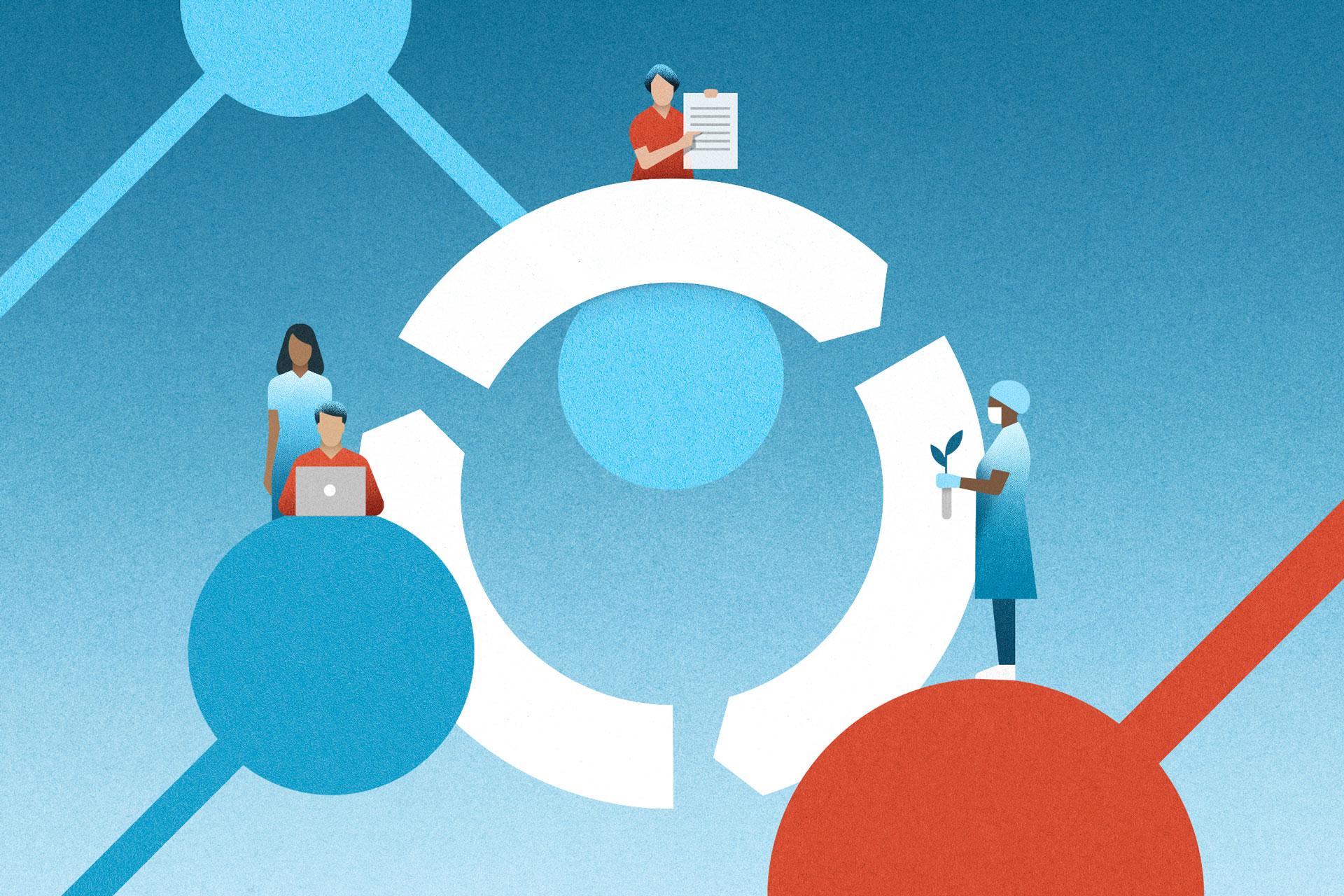Sustainable development

Meeting the challenges of sustainable development is one of the most important tasks of our time. The SNSF promotes sustainability in research and uses resources responsibly.
Climate change, social inequality and food crises are threatening the foundations of life, the economy and society worldwide. Sustainable development is more urgent than ever - in environmental, social and economic terms. Research can make significant contributions by generating knowledge, developing solutions and fostering dialogue. It must also act sustainably itself.
The SNSF takes its responsibility as a research funder seriously. The Sustainable Development Goals for a better life for everyone – within planetary limits – are of great importance to us. In a sub-strategy, we have defined three fields of action:
- Research on sustainable development: We promote forward-looking projects that address sustainable development issues.
- Sustainable research: We provide guidelines and create incentives so that researchers act in an increasingly sustainable way in their projects.
- Sustainable operations of the SNSF: We continuously and systematically improve our own use of resources.
Learn more about the three fields of action:
Field of action 1: Research on sustainable development
The SNSF funds research on a variety of sustainable development topics in all of its funding schemes. What is the impact of climate change on biodiversity and functional processes of mountain ecosystems through altered plant-soil interactions? How does the arrival of asylum seekers affect the local populations? What is the contribution of infrastructure maintenance and repair to the energy transition? These examples show the breadth of the questions that researchers are working on with SNSF support. In recent years, they have particularly often addressed issues relating to the UN Sustainable Development Goals of "Good Health and Well-Being," "Climate Action," "Affordable and Clean Energy" and "Peace, Justice and Strong Institutions."
The global challenges we face today are so complex that they cannot be adequately addressed by individual undertakings. Therefore, joint projects involving multiple research groups or disciplines are particularly important in research on sustainable development. In addition, cooperation with stakeholders from politics, business and society at large is needed to generate knowledge that can be applied in practice. We are therefore focusing on such approaches, among others, when further developing our research funding portfolio. Moreover, when evaluating grant applications, we take into account the researchers' overall scientific achievements, thus also recognising results that are particularly important for non-academic partners and for sustainable development. This includes knowledge transfer, patents or public outreach.
Where are the gaps in existing knowledge? We obtain a systematic overview and incentivise research to fill these gaps with targeted funding opportunities. In the future, we will better connect the findings of the research on sustainable development we fund and make it even more visible.
- United Nations Sustainable Development Goals (Agenda 2030)
- How does SNSF research relate to the UN Sustainable Development Goals?
- NRP 73 Sustainable Economy: resource-friendly, future-oriented, innovative
Field of action 2: Sustainable research
If research is to make a comprehensive contribution to sustainable development, it must itself act in an environmentally and socially responsible manner. That is why the SNSF provides guidelines and creates incentives to ensure that researchers carry out their projects in an increasingly sustainable way. For example:
- We support the 3R principles (replace, refine, reduce) that apply to animal experiments.
- We require all researchers we fund to make their results and data freely available. This prevents resources being used for repeated experiments, samples or surveys.
- We do not systematically ask in the CV whether researchers have contributed to international conferences. This contributes to reducing air travel.
- We have long promoted gender equality in research, an important social aspect of sustainable development.
In the future, we will focus more on how we can measure the CO2 footprint of projects and keep it as small as possible.
- Animal testing
- Open Science
- DORA declaration
- Gender equality
- CV format
Field of action 3: Sustainable operations of the SNSF
The SNSF is constantly improving its use of resources. When making operational decisions, we consider the consequences for sustainable development, for example through the production, use and disposal of goods. The new head office in Bern-Wankdorf will meet the strictest sustainability criteria. Our international evaluation panels mostly communicate via videoconferencing, thus avoiding hundreds of trips each year. As our employees often work from home, they save many kilometres of commuting. This is good for the climate and the environment. Across the board, the SNSF offers a supportive and healthy working environment. It goes without saying that we pay equal salaries for the same work and ensure equal opportunities regardless of gender. The SNSF is working with determination towards making its activities ever more sustainable.
Legal framework and definition
The SNSF's sustainable development sub-strategy is based on the United Nations' 2030 Agenda. In its Sustainable Development Strategy 2030, the federal government has set priorities from a national perspective with regard to the Agenda’s goals. The SNSF is required by law to take these objectives into account when fulfilling its tasks.
Our understanding of sustainable development is guided by the definition formulated by the Federal government: “Sustainable development makes it possible to meet the basic needs of all people and ensures a good quality of life throughout the world, now and in the future. It encompasses the three dimensions of environmental responsibility, social solidarity and economic efficiency, and this on an equal, balanced and integrated basis, while also factoring in the tolerance limits of global ecosystems.”
News
Year